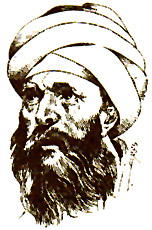Renaissance stimulated cultural resurgence in the Urdu literary tradition. The Urdu writers, with a romantic fervor (a feature of Renaissance in Europe), reoriented their literature. Mohammed Hussain Azad, Altaf Hussain Ali & Shibli Numani were the precursors of the Renaissance tradition of Urdu Literature. Azad left a brilliant legacy of natural poetry and Hali initiated an innovative modification in Urdu Literature.
 Quite a few numbers of works were the extraction & ornamentation of the chronicle personalities. "Al Farooq" deals with the life & achievements of formidable Farooq -i- Azam, the second Caliph of Islam. "Al- Mamoon" is the story of the achievements of Mamoon, the great, whose reign is known as the Golden Age of the Islam. "Al- Ghazali" deals with the teachings of Imam Ghazali, the greatest religious teacher.
Quite a few numbers of works were the extraction & ornamentation of the chronicle personalities. "Al Farooq" deals with the life & achievements of formidable Farooq -i- Azam, the second Caliph of Islam. "Al- Mamoon" is the story of the achievements of Mamoon, the great, whose reign is known as the Golden Age of the Islam. "Al- Ghazali" deals with the teachings of Imam Ghazali, the greatest religious teacher.
The contemporary Urdu literature, mainly concerned about the gallant stories of the great heroes, thereby stirring up the society to come out of the gloomy manacles. Shibli was the most famous critique of his time. His works, reminiscent of graphic prose & immense eloquence are the confluence of different philosophies & beliefs. The wave of Renaissance inflamed people & they came in contact with the literary trends of the world. Shibli`s critiques were the archetype of the foreign influence. "Shai-ar-ul- Azam", a renowned literary critic by Shibli dealt with the brilliant criticism of Persian poetry. "Philosophy of Islam" & "Al-Kalam" were the major treatise about Islamic Philosophy. However the Urdu Literary growth during Renaissance intended the social reforms through religious enlightenment.



















